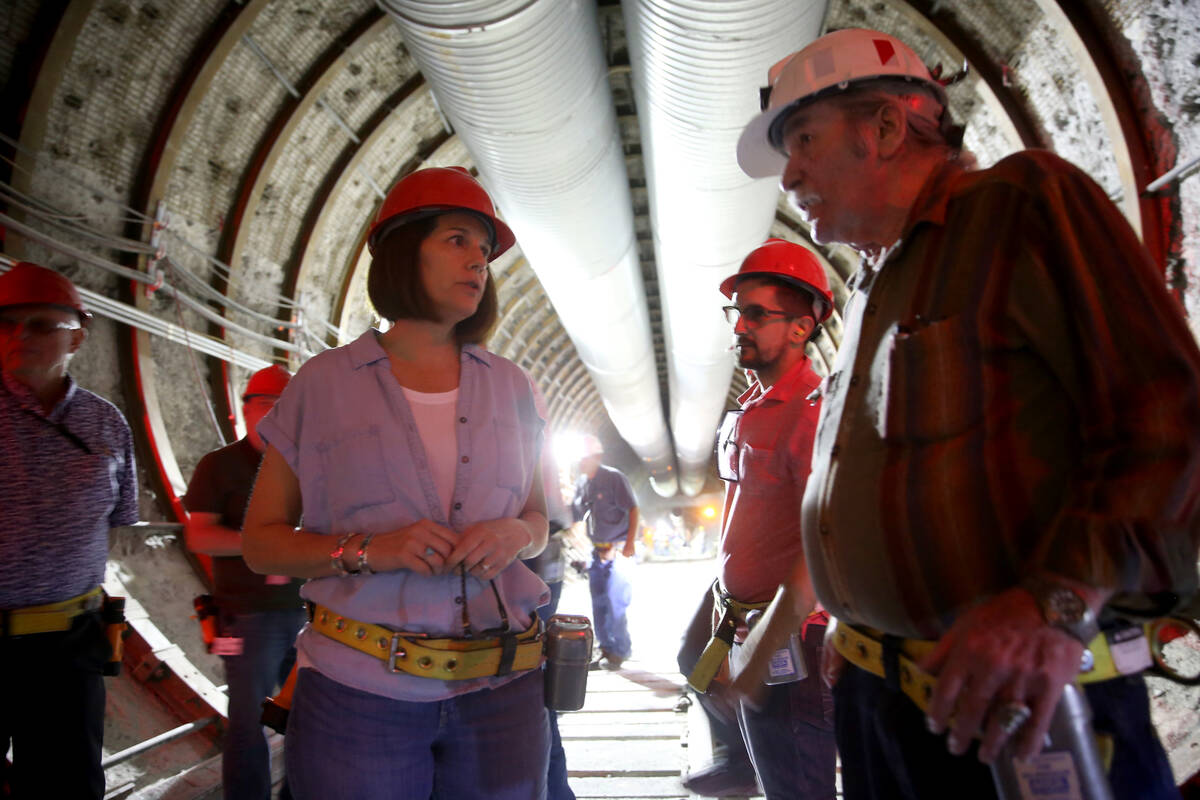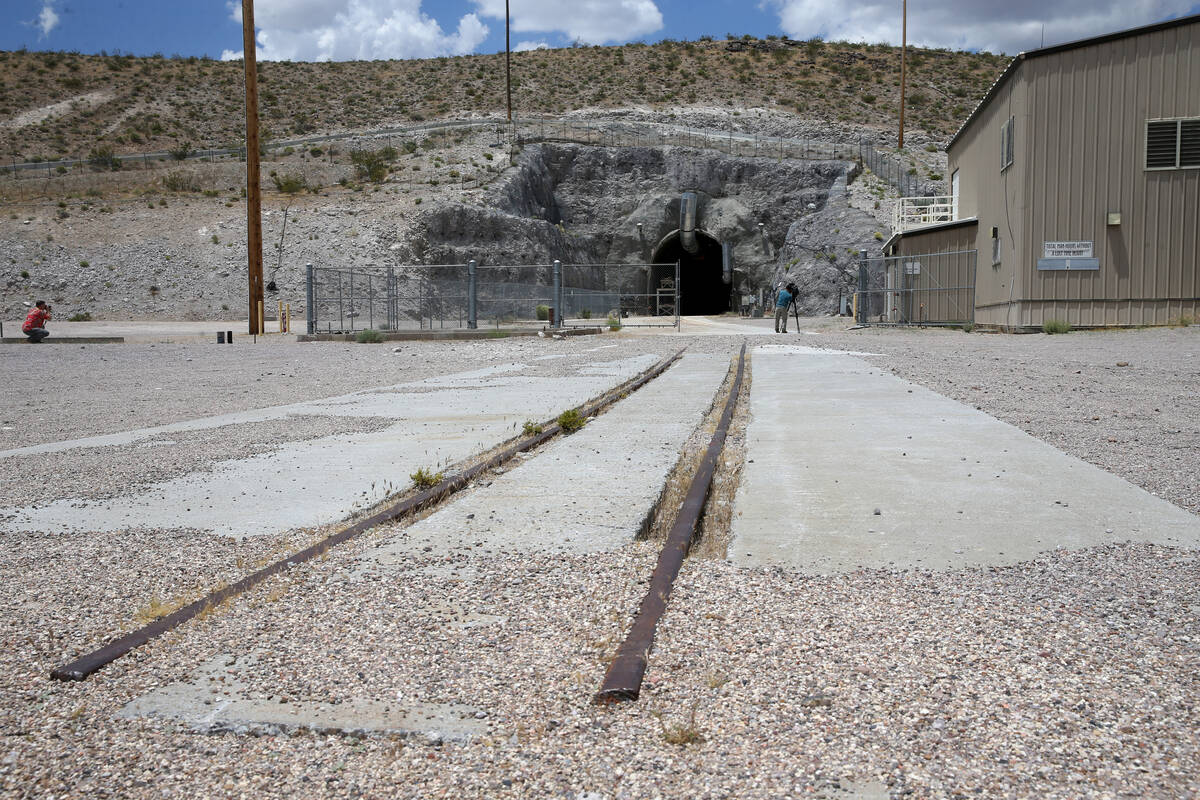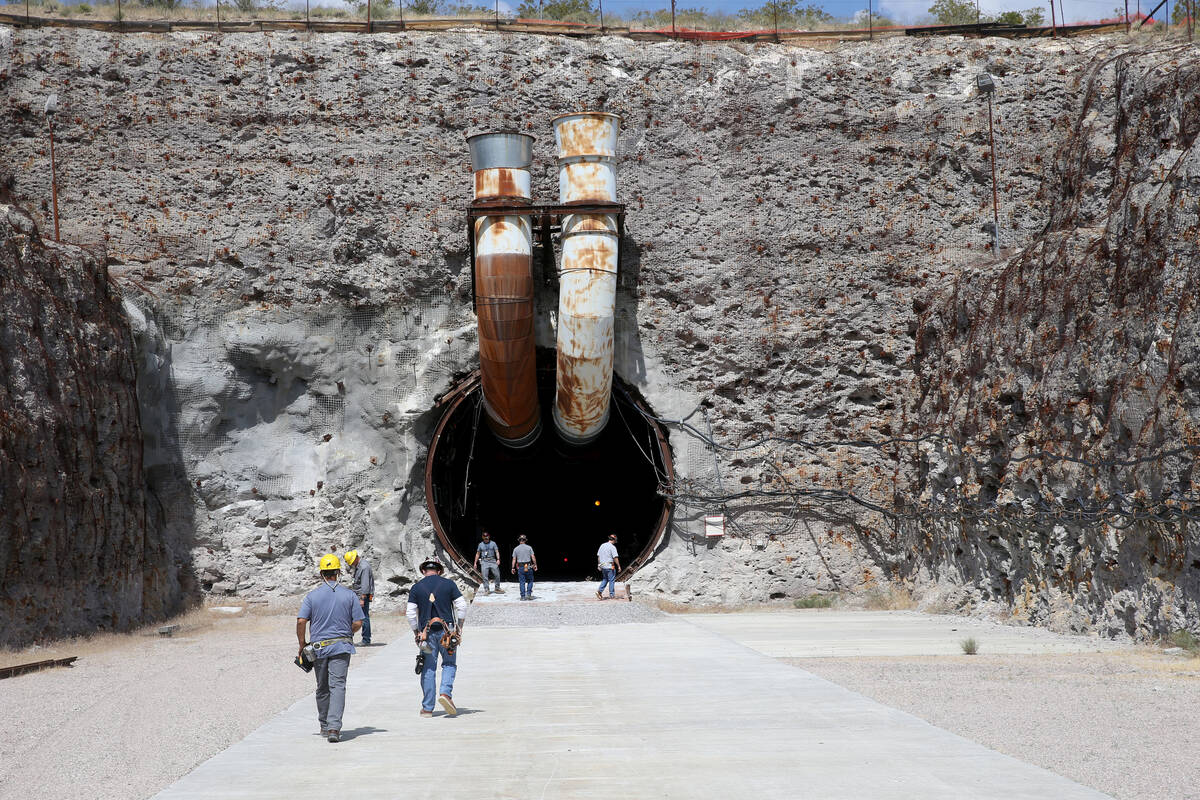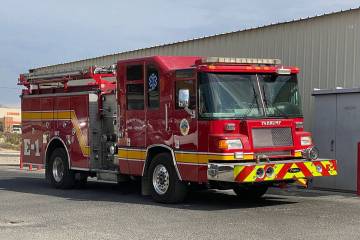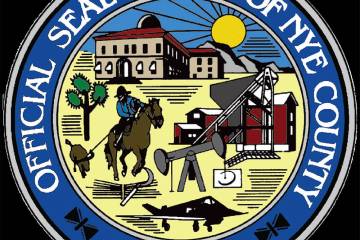Yucca Mountain report ‘good news’ for Nevada
WASHINGTON — A federal investigative report on nuclear waste disposal is recommending Congress amend a decades-old law designating Yucca Mountain as the sole location for disposal and allow interim and permanent spent fuel storage in other states.
The recommendation in the report by the Government Accountability Office, the investigative arm of Congress, mirrors proposals by Nevada lawmakers who have long opposed burying nuclear waste from commercial power plants.
“This assessment from the GAO and experts is good news for Nevada and follows what I’ve been saying for years,” said Rep. Dina Titus, D-Nev., who has repeatedly filed legislation in Congress to dispose of the waste in places where states and local governments give their consent.
Similar legislation has been filed by U.S. Sen. Catherine Cortez Masto, D-Nev.
Nevada Gov. Steve Sisolak and the state’s congressional delegation oppose transportation and storage of nuclear material at Yucca Mountain, located 90 miles north of The Strip. Tribal leaders, business and conservation groups have joined in opposition.
Long history
Then President Ronald Reagan signed legislation in 1987 that designated Yucca Mountain as the only site in the nation to dispose of nuclear waste. Efforts to construct a repository at Yucca Mountain began in earnest under President George W. Bush.
But a license application to build a permanent repository at Yucca Mountain was withdrawn in 2010 by the Department of Energy under the then-President Barack Obama administration.
And former Senate Majority Leader Harry Reid, D-Nev., led congressional action that stopped funding for the licensing process for the Nevada location.
“Since then, policymakers have been at an impasse on how to meet the federal disposal obligation, with significant financial consequences for the taxpayers,” Government Accountability Office auditors found.
The report recommended that Congress amend the 1987 law and allow for temporary and permanent storage in states that want to handle the waste.
Nevada embraces idea
The report’s recommendations reflect the reality Nevadans have known for decades, “that a new process is needed,” said Meghin Delaney, a spokeswoman for Gov. Steve Sisolak.
“Adopting a better, fairer process could finally help put an end to the failed Yucca Mountain Project and enable the nation to move forward with a workable solution to spent nuclear fuel management,” she said.
The recommendation in the report also mirrors legislative proposals by Titus and Cortez Masto, who have proposed legislation that would give states, local governments and tribal leaders a say in federal decisions to store nuclear waste.
“When a nuclear waste repository is proposed in our backyard, it is unacceptable to deny us a seat at the table,” said Cortez Masto.
The companion legislation filed by Titus and Cortez Masto, and backed by all members of the state’s congressional delegation, failed to pass in the House and Senate in the last Congress. But proposals in the legislation, drawn from a blue ribbon commission report on nuclear waste in 2012, is reflected in the new Government Accountability Office report.
“Nevada doesn’t use nuclear power, we don’t produce nuclear waste, and we shouldn’t be forced to store it,” Titus said. “I hope that we’ll seek to implement the recommendations laid out in this report.”
Nuclear states unhappy
Lawmakers in states with nuclear power plants say it’s urgent to address the growing stockpile of dangerous waste.
Sen. John Barrasso, R-Wyo., and others who seek a quick resolution, have filed bills to continue a safety review of Yucca Mountain while a more expansive interim and permanent storage strategy is established.
And a bipartisan proposal by former Sen. Lamar Alexander, R-Tenn., and Sen. Dianne Feinstein, D-Calif. to move forward with an interim storage strategy until the stalemate over Yucca Mountain is resolved died for lack of action in the last Congress.
The Government Accountability Office said it conducted the study due to the danger of stockpiling nuclear waste around the nation and the failure of the federal government to construct a repository to safely dispose of the waste from nuclear power plants in the three decades since Yucca Mountain was designated.
“Commercial spent nuclear fuel is extremely dangerous if not managed properly,” according to the report issued in September.
The report — “Commercial Spent Nuclear Fuel: Congressional Action Needed to Break Impasse and Develop a Permanent Disposal Solution” — was sent to key lawmakers in both political parties on Senate and House committees that oversee energy, defense and environmental policy.
Waste piling up
According to research, about 86,000 metric tons of spent fuel is stored on-site at 75 operating or shuttered nuclear power plants in 33 states. The amount of waste grows by 2,000 metric tons each year. Nuclear waste is expected to grow to 140,179 metric tons by 2030.
Lawmakers in states with nuclear power plants where waste is being stored have sounded an alarm over the dangerous practice and risk of contamination and sabotage.
California lawmakers have filed legislation to prioritize removal of waste at the now-closed San Onofre plant in Orange County, where beach erosion threatens the closed generating station and stockpile of radioactive materials.
A 1982 mandate forced the federal government take possession of commercial nuclear waste, and the failure to do so has forced the government to pay utility companies and commercial power plant owners for temporary storage. In 2019 alone, that amount was roughly $9 billion, the Government Accountability Office found. It projected a cost of $30 billion in the next decade.
Meanwhile, government auditors noted problems of moving forward with the Yucca Mountain repository, which has “long experienced state and tribal opposition.”
Broad agreement on report
State officials have expressed concern about excessive water infiltration, earthquakes, volcanoes and other technical issues. Shoshone and Paiute Tribes oppose the repository on cultural grounds and consider it a form of environmental racism.
Nye County, where Yucca Mountain is located, has supported an ongoing licensing process to determine whether the site is safe.
The Department of Energy concurs with findings in the report and is moving to develop plans to dispose of waste at sites that have the consent of state and local governments. Officials with the Nuclear Regulatory Commission, which oversees the licensing process for waste repositories, also agreed with the findings.
Still, challenges remain.
The Nuclear Regulatory Commission issued a license to Interim Storage Partners to construct a repository near Andrews, Texas, which has drawn opposition from the Republican governor, residents, energy producers and conservationists. Another company seeking a license to build a temporary storage facility in New Mexico also faces opposition from the Democratic governor, state lawmakers and residents.
In both states, officials have openly worried that without a permanent storage facility, like Yucca Mountain, interim repositories could become permanent storage facilities of dangerous radioactive material.


